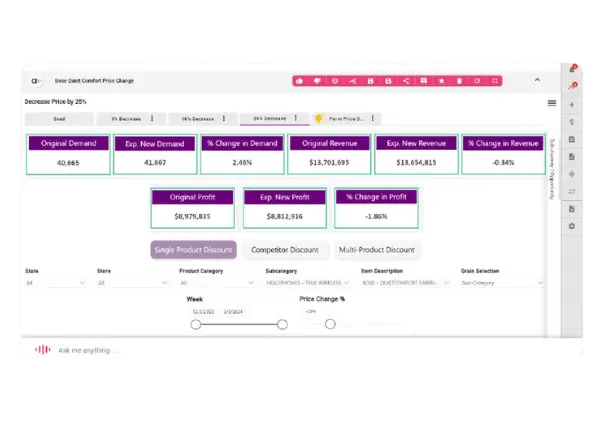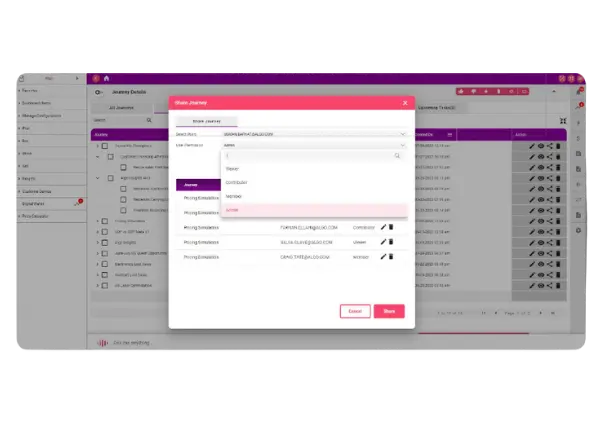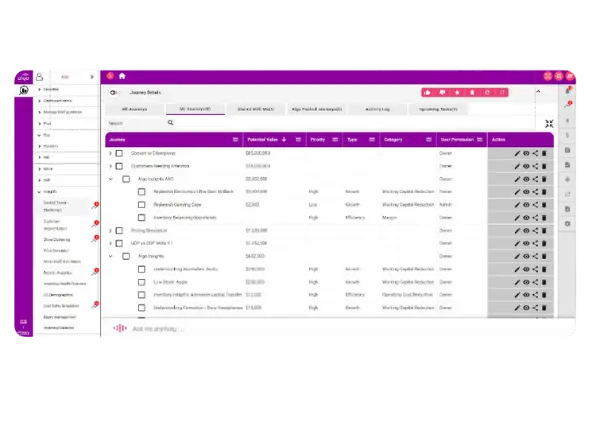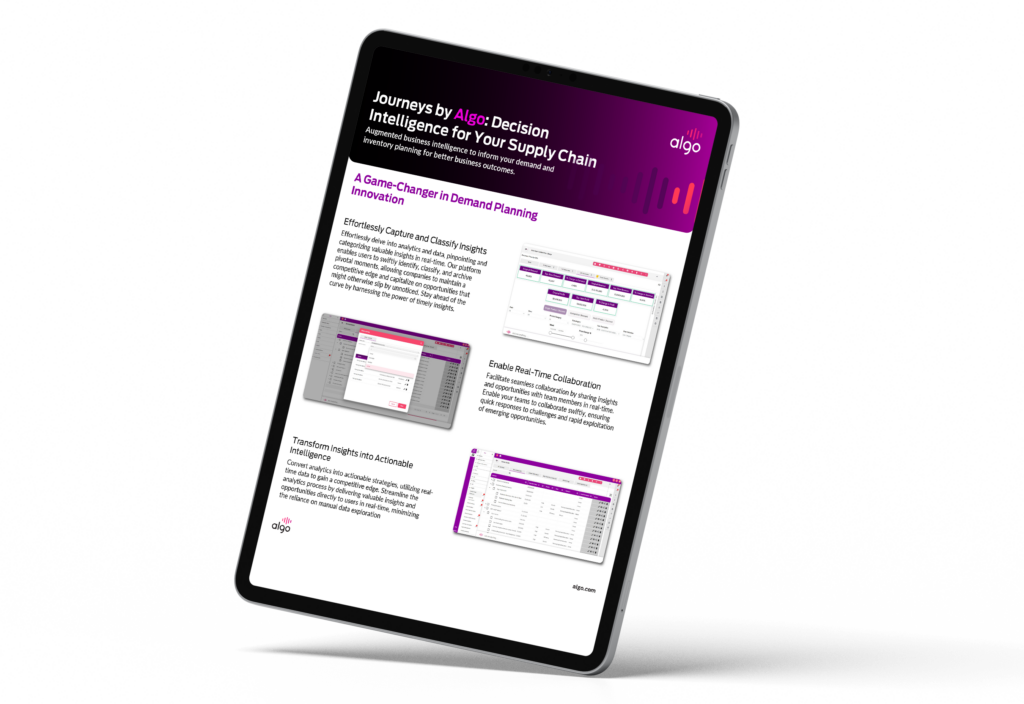A Game-Changer in Demand Planning Innovation
Key Benefits of Journeys:
Use Cases
Praise from our valued customers

“By bridging the gap between various departments such as demand planning, merchandising, supply chain, and operations, solutions like Algo ensure that all decisions are in lockstep, fostering seamless coordination across the supply chain. The ability to collaborate seamlessly, while shortening the distance between opportunities and actions, truly drives innovation and new opportunities in the business.
Algo’s solution integrates data, simulation, and human intelligence to accurately predict customer demand, streamline operations, and ensure balanced inventory. Their strength in data analysis offers valuable insights that keep your retail business at the forefront of a competitive market.”
Diane Sherwood
Supply Chain Executive from Best Buy & CarParts





